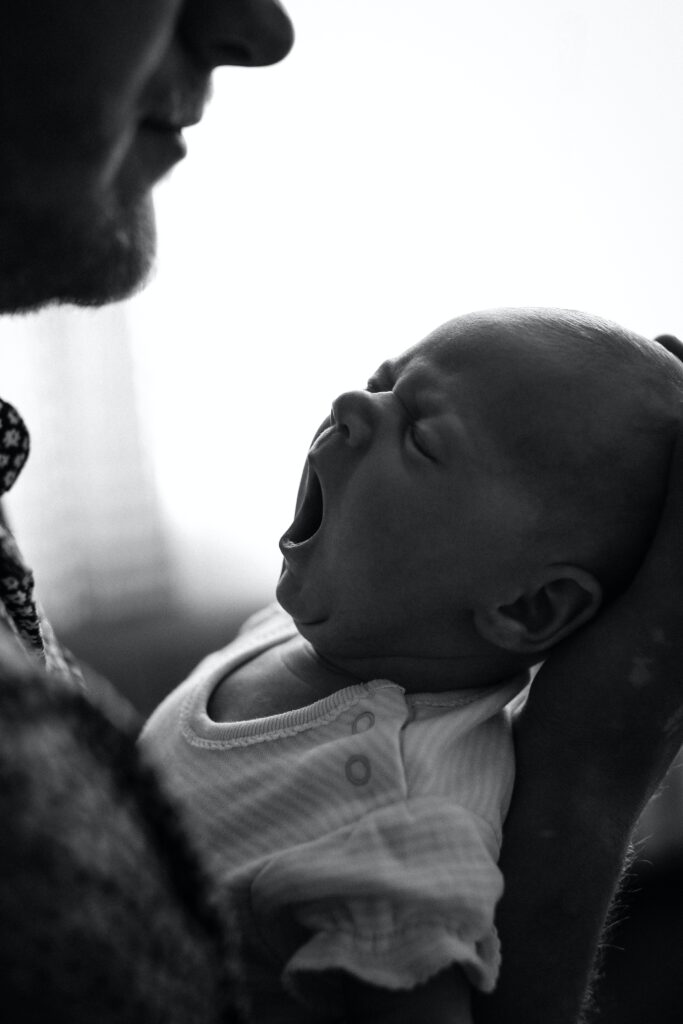Average Baby Weight – This is What You Should Know! From the day your baby is born, the doctors will keep track of things such as weight, length, and head size. Growth is a great indicator of general health. Babies that are growing well are generally healthy, whereas poor growth often indicates that there is another problem.
How Big are Babies When They’re Born

Newborns may come in a wide range of various healthy sizes. Babies that are born between 37 and 40 weeks generally weigh anything from 5 pounds, 8 ounces ,and 8 pounds, 13 ounces (4,000 grams).
Newborns that are born lighter or heavier than the average baby are generally fine. They may, however, get a little extra attention from the doctors and nurses after the delivery to ensure that there are no problems.
There are many factors that will affect the size of a baby at birth. The length of the pregnancy is important for this. Babies that are born near their due date or later often tend to be larger than babies that have been born earlier.
Other factors include:

- The size of the parents: Parents that are big and tall may have larger-than-average newborns. Parents who are short and petite may have smaller-than-average newborns.
- Multiple births: If you are expecting twins, triplets, or more, you can be sure that your babies may be a bit small. Multiples need to share their growing space in the uterus and are generally born early, which results in a small size at birth.
- Birth order: Babies that are born first are generally smaller than their siblings that are born later.
- Gender assigned at birth: Girls are often smaller and boys larger, although the differences are slight at birth.
- The mother’s health during her pregnancy: Things that may lead to a lower birth weight include high blood pressure in the mother or if the mother has heart problems. Mothers who smoked cigarettes, drank alcohol, or used any illegal drugs during the pregnancy, will also contribute to lower birth weight. Diabetes or obesity may result in the baby having a higher birth weight.
- Nutrition during pregnancy: In order for your baby to grow as much as possible, good nutrition is extremely important. A poor diet during your pregnancy may affect how much your newborn weighs as well as how they grow as an infant. Gaining plenty of weight during pregnancy may ensue in the baby being more likely to be born bigger than average.
- The baby’s health: Medical problems, including birth defects as well as some infections during the pregnancy, may affect a child’s birth weight and, later, their growth.
What about Babies Born Prematurely and their Average Baby Weight

Babies that are born prematurely are, in most cases as well as smaller and weigh less than other newborns. The weight of a preemie will largely depend on how early they were born. The time that the newborns miss being in the womb is the time that they need in order to grow. Therefore, they’ll be smaller as they need to catch up on that growth after birth.
Many babies that have been born prematurely are classified as either having “low birth weight” or “very low birth weight.” In medical terms:
- If a baby has a low birth weight, this means that they weigh less than 5 pounds, 8 ounces at birth. This will be a result of 1 in every 12 babies born in the US, making it quite common.
- Very low birth weight means that a baby is born with a weight of fewer than 3 pounds, 5 ounces (1,500 grams).
Most babies that have been born prematurely have a low birth weight or a very low birth weight.
Babies that have been born prematurely require special medical attention right after birth. A Neonatologist is a specialist that may help care for them. Most babies born prematurely have to spend time in the neonatal intensive care unit (NICU) while they get medical care.
Is Bigger Really Better? – Average Baby Weight Goes both Ways

When most people picture a healthy newborn, they think of a baby that has chubby cheeks and dimpled thighs. However, a baby that has been born much larger than the average newborn may have special medical problems that require attention.
Some babies that are very large, especially babies born to mothers who have diabetes, including gestational diabetes, may have problems keeping their blood sugar levels up during the first few days. They may require extra feedings as well as IV glucose to keep their levels from falling too low.
Will the Baby Lose Weight?
At first, yes. Babies are generally born with some extra fluid. Therefore, it is normal for them to drop a few ounces once they lose that fluid in the first few days of their new lives. A newborn that is healthy is expected to lose 7% to 10% of its birth weight, but it should regain this weight within the first two weeks or so after birth.
During a baby’s first month, newborns generally gain weight at about 1 ounce (30 grams) per day. They often grow in height about 1 to 1½ inches (2.54 to 3.81 centimeters) during their first month. Many newborns will go through rapid growth, known as a growth spurt when they are 7 to 10 days old, and it will happen again at 3 and 6 weeks.
When to Become Concerned – What is the Average Baby Weight

Newborns are typically very small, making it hard to know if your baby is gaining weight the way that it should. You may feel worried that your baby has lost too much weight in the first few days or isn’t drinking enough milk. If you are facing these stressors, speak to your pediatrician, who may ask you about:
- How many feedings your baby gets in a day: A baby that is breastfed may feed about 8 or more times within a 24-hour period. Babies that are formula fed usually drink less often, perhaps every 3 to 4 hours. A lactation (breastfeeding) consultant could help with suggestions to increase comfort as well as improve technique if a mom requires any extra help.
- How much your baby drinks at each feeding: A baby nurses for at least 10 minutes and should be heart swallowing after 3 to 4 sucks as well as seem satisfied when done. At this age, babies that are formula-fed may drink up to 3 to 4 ounces (90 to 120 milliliters) at a time.
- The number of wet diapers your baby has: A baby that is breastfeeding may only have h 1 or 2 wet diapers a day until the mother’s milk comes in. After about 3 to 5 days after birth, you should expect about 6 wet diapers a day. This rule counts for babies of all ages. Babies should have at least 6 to 8 wet diapers a day once they’ve settled into feeding.
- Baby Bowel Movements, as well as what they’re like: One poopy diaper a day at first is common amongst newborns. Poop is dark and tarries within the first few days and later becomes soft or loose and a greenish-yellow by day 3 to 4. Newborns generally have many poopy diapers a day if they are breastfed and fewer if they are fed formula.
Average Baby Weight
The size of your baby at birth, no matter if they are small or large, does not mean that your baby will be small or large later in childhood or even as an adult. Plenty of teens that are tall today began their life as small babies. This goes for the big babies as well. The biggest baby born in the family can grow up to be a petite adult.


